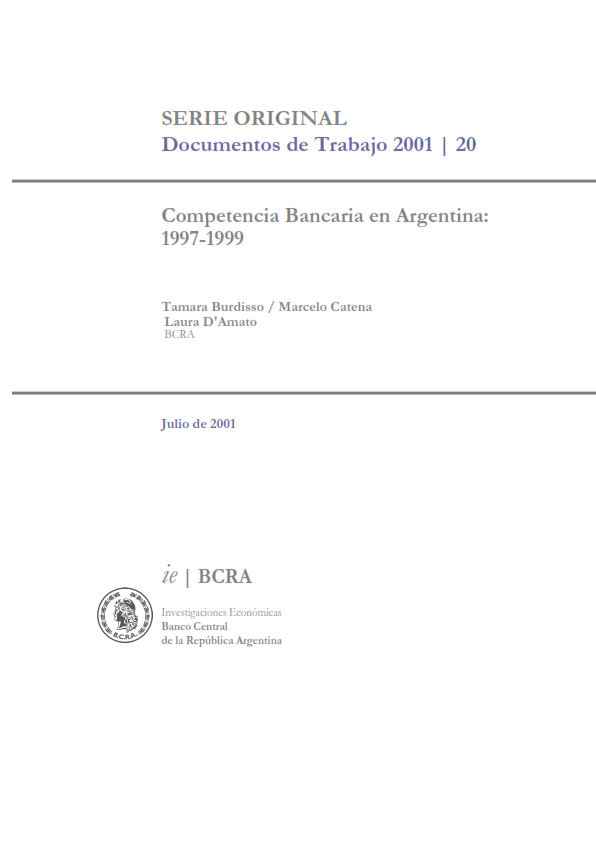Bank Competition in Argentina: 1997-1999
Working papers (original series) | 2001 | N 20
Keywords:
Conjectural variations, Multi-output firms, Market power indexAbstract
Over the last decade the Argentine banking industry has been subject to important regulatory changes, increased internationalization and restructuring. The way in which this process has affected the degree of competition is subject to discussion in Argentina, and it has been argued, along the lines of the structure-conduct-performance paradigm (SCP), that increased concentration could have undermined competition in banking markets. But, while according to the former approach concentration is necessarily related to poor competition, the new industrial organization (NIO) approach, that relies on firms’ profit maximization behavior, has emphasized the weaknesses of relying on concentration measures to draw conclusions about market structure. This paper evaluates the competitiveness of Argentine banking markets by extending the Conjectural Variations (CV) approach to the case of multi-product firms. We model Argentine banks as multi-output firms, operating in two markets: retail and corporate, an adequate classification to describe the characteristics of the Argentine banking system, where some banks are more retail oriented and have a broad network of branches and are more specialized in giving credit to firms. We measure the degree of market power by estimating a CV model for a panel of banks from 1997 to 1999. Rather than evaluating a specific market structure, we construct a market power index that varies in a continuum interval. This measure permits to determine the extent to which prices deviate from marginal costs, which is the relevant question from the welfare point of view. We find that for both markets, retail and corporate, are very close to the competitive solution. Finally, these results are confronted with the predictions that could be drawn from concentration measures, according to the SCP approach.
JEL classification: L15, G10, C6


